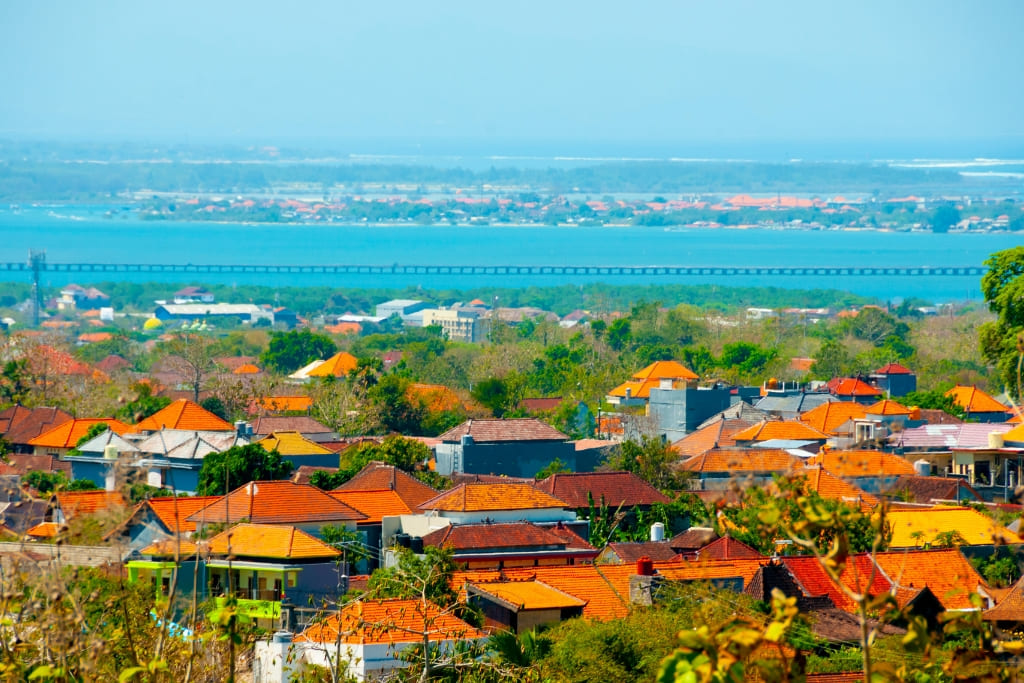Bali, often celebrated as a world-class tourist destination, is also a promising land for business ventures and expansions. With its flourishing economy, cultural diversity, and robust infrastructure, the island offers various strategic locations catering to different business needs. From retail and hospitality to creative industries and professional services, each area in Bali presents unique opportunities for growth and success. Below, we explore the most strategic locations for business expansion in Bali and their distinct advantages.
1. Denpasar: The Economic and Administrative Hub

As the capital city of Bali, Denpasar is the island’s economic and administrative heart. The city offers a highly developed infrastructure, making it an excellent choice for businesses in logistics, retail, and professional services. Denpasar’s bustling streets are home to numerous banks, offices, government institutions, and markets, making it easy for businesses to connect with suppliers, clients, and regulatory authorities.
Moreover, its central location provides easy access to other parts of the island, ensuring seamless operations for businesses with wider geographical coverage. Companies targeting local Balinese consumers or seeking a steady flow of residents and domestic tourists often find Denpasar a lucrative base.
2. Seminyak: A Premium Market for Upscale Brands

Known for its upscale vibe, Seminyak is Bali’s epicenter for luxury tourism and high-end lifestyles. The area is home to five-star resorts, fine-dining restaurants, designer boutiques, and wellness centers, making it an attractive market for businesses targeting affluent customers.
Companies offering premium products or services—such as jewelry stores, spa services, or boutique fashion brands—can benefit significantly from the area’s established reputation for quality and exclusivity. Seminyak also attracts expatriates and digital nomads, providing opportunities for co-working spaces, professional services, and real estate ventures.
3. Ubud: The Creative and Wellness Capital

Businesses in health, sustainability, and creative industries thrive in Ubud due to its strong community focus and emphasis on mindful living. Yoga retreats, art galleries, eco-lodges, and organic food restaurants dominate the local market.
Ubud is particularly suitable for entrepreneurs passionate about environmentally and socially conscious businesses. The town’s slower pace and international appeal attract a demographic seeking authenticity and purpose-driven enterprises, making it fertile ground for creative and sustainable initiatives.
4. Canggu: The Tech and Digital Hub

Canggu has become a magnet for digital nomads and tech entrepreneurs. With a mix of co-working spaces, trendy cafes, and an innovative community, the area is ideal for businesses in technology, digital marketing, and creative services. Its growing expatriate population also opens opportunities in real estate and wellness industries.
5. Sanur: A Quiet, Growing Market

Sanur is an attractive market for wellness retreats, boutique hotels, and family-oriented businesses. In recent years, Sanur has also become a preferred location for expatriates, driving demand for property management services, cafes, and international schools. Businesses targeting a more mature and family-focused demographic may find Sanur an ideal base.
6. Jimbaran: Balancing Tourism and Business

Jimbaran offers a balance between luxurious tourism and local business opportunities. Known for its beachfront dining and luxury resorts, the area attracts middle-to-high-income visitors, making it ideal for upscale dining, hospitality, and lifestyle businesses.
At the same time, Jimbaran’s proximity to the international airport and Nusa Dua’s conference facilities makes it suitable for professional services catering to the corporate sector. Businesses that bridge the gap between leisure and commerce often find Jimbaran a strategic base for expansion.
7. Nusa Dua: A Corporate and Conference Destination

Nusa Dua is Bali’s prime location for luxury resorts, international conferences, and corporate meetings. Its world-class facilities and exclusive appeal make it a hotspot for businesses targeting corporate clients, high-profile events, and luxury travelers.
Event management, professional services, and high-end retail brands are particularly well-suited to Nusa Dua, as the area hosts many international delegates and premium customers. The Bali International Convention Centre and nearby luxury hotels make Nusa Dua a natural choice for businesses focused on large-scale hospitality and events.
8. Kuta: The Tourism Powerhouse

Kuta remains one of Bali’s most vibrant tourist destinations. The area’s high footfall of international travelers makes it ideal for businesses in hospitality, retail, and entertainment. Restaurants, bars, nightclubs, and boutique stores thrive here, benefiting from visibility and accessibility, thanks to its proximity to Ngurah Rai International Airport.
9. Uluwatu: Rising Potential in the South

Once known primarily for its iconic surf spots, Uluwatu is rapidly evolving into a high-potential location for luxury tourism and real estate. The area is home to breathtaking cliffside resorts, boutique villas, and premium dining establishments.
As infrastructure in southern Bali continues to improve, Uluwatu is becoming increasingly attractive to businesses seeking untapped markets in the luxury and eco-tourism sectors.
10. Gianyar and Beyond: Exploring Rural Opportunities

Outside the well-known hubs, areas like Gianyar offer opportunities for agriculture-based businesses and ventures in rural tourism. With Bali’s growing focus on sustainability, businesses dealing in organic farming, eco-friendly products, or rural-based experiential tourism can capitalize on the increasing demand for ethical and authentic offerings.
Conclusion
Bali offers diverse strategic locations for business expansion, each with its distinct advantages and opportunities. Whether targeting luxury tourism in Seminyak, digital innovation in Canggu, or sustainable practices in Ubud, businesses can align their goals with Bali’s vibrant and evolving ecosystem. With the right strategy and understanding of local markets, entrepreneurs can harness Bali’s potential as a thriving base for growth and success on both regional and global scales.





